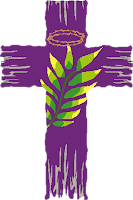“As Jesus was walking along, he saw a man called Matthew sitting at the tax booth; and he said to him, “Follow me.” And he got up and followed him.” (Matt. 9:9)Jesus knew that it was a religious violation to break bread with tax collectors, social outcasts and misfits, not to mention to be in close contact with a diseased woman, but he broke bread with them all. They clearly are a group gathered in fellowship. Jesus is literally a "friend of sinners." He did these things because he believed that showing mercy is never against the law of God.
Jesus sits down to dinner with a group of tax collectors and “sinners,” people in Jesus’s day, as well as ours, who were considered misfits and outcasts, earning the disdain of the purity-conscious Pharisees. But Jesus turns the tables, telling them that he has come to call not the righteous, but sinners. “Go and learn what this means,” he orders them, “I desire mercy, not sacrifice” (vv. 10-13).
“Go and learn what this means,” is a phrase God has frequently shared with me. Following Jesus requires us to hit the road and experience life only in the way that Jesus can show us. Working with individuals both in the depths of their addictions, those in recovery, and their family members, helped me to understand, Jesus words about mercy, grace, forgiveness and so much more.
In calling Matthew to be one of his disciples, Jesus picked one of the most unlikely individuals. A tax collector who by profession was despised by his own people. Jesus’ had the ability to see within those he called, not only what they were, but also what they could be. What did Matthew see in Jesus that made him instantly ready to leave everything, to follow Jesus? At that moment, maybe Matthew saw in Jesus the hope of true friendship and peace with God, maybe he experienced the irresistible grace of God.
Jesus shows real transformative power when he surprises the Pharisees with a call for mercy, not sacrifice. Jesus is calling us to see the possibilities which exist in the individuals around us, despite the problems and challenges they currently face. Our ministry believe that God’s grace and mercy will bring amazing and unexpected change. We are expected show mercy, to educate, mentor, and help them shape their lives into the potential that God created them to fulfill.
We must note what Matthew lost and what Matthew found. He lost a comfortable job, but found a destiny. He lost a good income, but found honor. He lost a comfortable security, but found an adventure the like of which he had never imagined. We come to believe that beyond any doubt we will find a peace and joy and thrill for life that we never knew before. Do you thirst for true and lasting friendship with God? “For I have come to call not the righteous but sinners.” (Matt. 9:13)
Lee McDermott, Contributor
Remember in Prayer: Ability to care for those not always invited to the table.
Click Here PDF - Day 27 Devotion





























